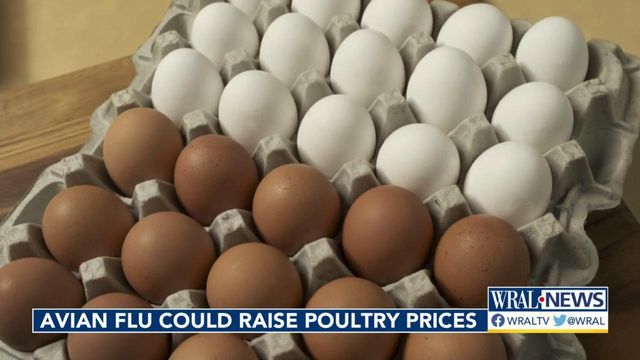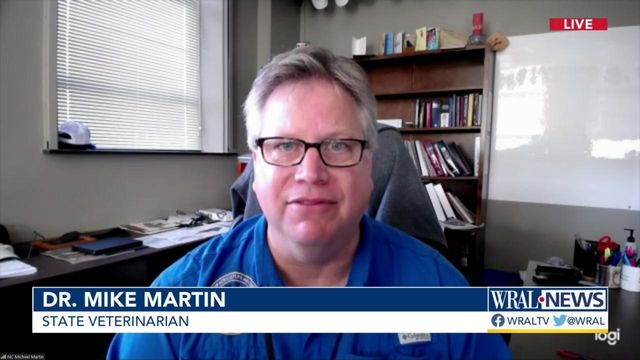Sticker shock: Bird flu could cause price of poultry to rise before Easter
An avian flu outbreak across several states, including North Carolina, might have consumers paying more for eggs and chicken.
Posted — UpdatedAn avian flu outbreak across several states, including North Carolina, might have consumers paying more for eggs and chicken.
Thousands of chickens and turkeys have been culled in North Carolina to stop the spread of High Path Avian Influenza. That could push poultry prices up — just in time for Easter.
Agriculture experts said they want consumers to know that it's safe to eat chicken, turkey and eggs bought at the store. But thinning the flocks could lay on extra costs.
Zabdiel Dewar, the owner of D Chill Spot in Rocky Mount, buys hundreds of pounds of chicken a day. Dewar said since the coronavirus pandemic, the cost of chicken has more than doubled.
While Dewar said he hasn't seen an increase in price from HPAI, if one comes, his customers will ultimately pay.
"I'm hoping my customers will understand what is going on in the world and understand that we're not trying to rip anyone off, but we're just trying to cover those costs that have been thrown at us," he said.
In North Carolina, seven million eggs are produced each day by nine million laying hens at egg farms.
"No egg farm in North Carolina — thank goodness — have tested positive," said Lisa Prince, the executive director of the North Carolina Egg Association.
"Taking care of the flock is their number one priority, so it is truly devastating to a farmer whenever his hens get sick," said Price.
Warning signs of HPAI include lower egg production and soft-shelled or misshapen eggs. The birds can also become lethargic and show swelling in the head and eyelids.
But the strain is low risk to people -- and there are no reports of it infecting a person.
Since the outbreak began, the state poultry industry has had to destroy more than 90,000 turkeys and 280,000 broiler chickens. Agriculture experts add that number is only expected to grow.
• Credits
Copyright 2024 by Capitol Broadcasting Company. All rights reserved. This material may not be published, broadcast, rewritten or redistributed.






